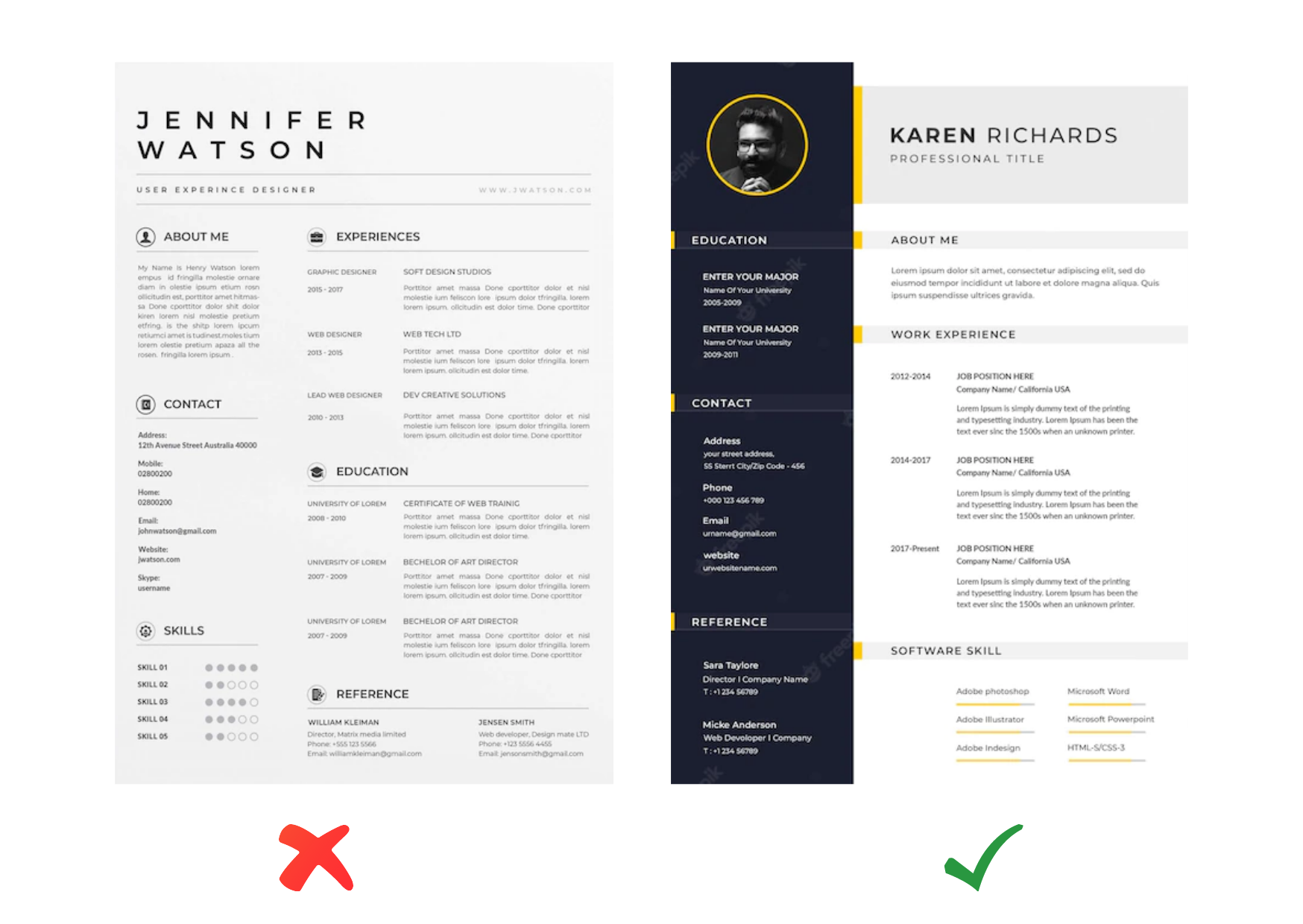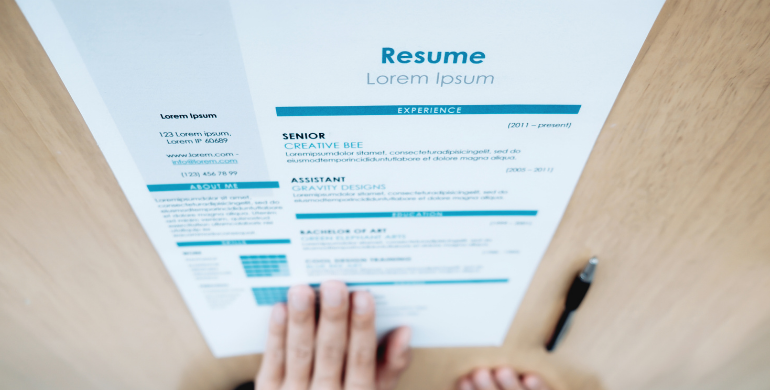The admission committee will read your MBA resume first when evaluating your eligibility for the program. Your MBA resume gives context to your professional accomplishments and serves as a unifying thread in your MBA application. Your resume for MBA should reflect your leadership abilities and professional experience.
A few things you should consider including in your resume are;
- Standardized Test Score (GMAT/GRE)
- Showcase Leadership, and Other Soft-Skills
- Transcripts of Undergraduate Degrees (Academic Background)
- Application Essays (Why MBA?)
- Lettres of recommendation (Third-person Perspective)
- Application Form (may contain short answer questions)
- Business schools are increasingly using video essays
- Add resume summary
Each component serves a different purpose during the MBA application process. E.g. Your standardized test scores, undergraduate transcripts, and other evidence will be used by the admission committee to show that you are capable of completing the rigorous MBA program curriculum.
This article explains the MBA Application components and how they are weighed in the admissions process.
Similar to the essay prompts and application form, your responses are a showcase of your motivation for pursuing an MBA. If you are not confident in your speaking abilities then you can try these ways to improve them.
We share 10 tips to help improve your MBA resume

1. MBA Resume Purpose
Your MBA resume is used by the admissions committee to help you evaluate your leadership potential in business 20-30 years after graduation from the MBA program. Your resume will help the admission committee assess your leadership abilities and interpersonal skills.
2. Leadership is essential
Stacy Blackman Consulting, a consulting firm for MBA admissions, says that proof of leadership abilities is essential as you can see in other MBA resume examples. Blackman stated in a blog post that “Business schools are looking for applicants who have demonstrated leadership abilities.” While you will continue to improve your management skills during your MBA program the admissions committee still wants to see that foundation.
3. Provide specific details
Experts say that a MBA resume should detail accomplishments using concrete language. Admission officers will not be influenced by claims of strong performance that aren’t supported by evidence. In a blog post, Blackman stated that MBA resumes are more powerful if they can quantify results. Admissions committees love to see results-oriented phrases on resumes. Therefore, for each bullet point, quantify results in dollars or percentages as often as possible.
Incorporating relevant certifications into their MBA resume, candidates can further substantiate their qualifications and stand out to admissions committees. Certifications provide tangible evidence of specialized knowledge and skills, reinforcing the candidate’s qualifications. For example, candidates can highlight certifications such as Project Management Professional (PMP), Certified Public Accountant (CPA), or Six Sigma Green Belt, depending on their field of expertise. By utilizing resources like SIE mock tests by Career Employer, candidates can gain confidence, enhance their understanding of the securities industry essentials, and increase their chances of achieving a competitive score.
4. Keep it brief
Experts recommend that a resume for MBA should not be more than one page. Experts say that there are many misguided MBA applicants who submit lengthy resumes. This can overwhelm admissions officers.
5. Be truthful
Experts agree that a large part of the job of an MBA admission officer is to judge applicants’ credibility. False resumes are a mistake. Experts believe that MBA applicants who lie to the admissions committee are usually rejected. Those who are admitted wrongly are often expelled.
6. Extracurricular activities should be described
Experts agree that admission officers don’t care about how many activities you have participated in. What matters is whether your impact has been meaningful on the community or organization. Experts say that admissions officers won’t accept a long list of activities without explaining the accomplishments.
7. Highlight soft skills
Experts believe that the best MBA resumes focus on soft skills, also known as power skills.
The really doesn’t mean you write MBA or MBA on your resume!!!
These skills are critical to business leadership and crucial in the workplace. It’s essential to highlight skills that you have pursued.
8. Concentrate on your career advancement
Keep your resume simple. Experts recommend that applicants with extensive work experience focus their resume on the most important positions to their professional success. Blackman shared his MBA application tips in a post titled MBA Application Tips. Experts say that a well-written MBA resume is a cohesive story that explains why business school is the right next step.
Also, read quotes about the organization
9. Never skip writing the things that will help you stand out
You should add blogs, professional licenses, organizations, and volunteer positions to your resume application for MBA. Keep in mind your space limitations and list only the most important.
10. Make sure you proofread and update the resume
You want to make sure your resume is free from misspellings, grammatical mistakes, and similar errors to your essays. After you have completed proofreading your resume, ask a colleague, friend, or professional to review it.
Do not put off creating your MBA resume. It is your first chance to impress people so make sure you do your best!
Related article is basic industries a good career path



